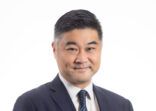The last 2-3 years private bank distributors in Hong Kong and Singapore have been moving closer to 60%, according to sources on both the asset and wealth managment sides.
A key reason is that big private banks control distribution channels in Asia, and with size comes bargaining power when determining a fee split.
“Hong Kong is one of the highest fee markets in the world with $2.5bn in retrocession fees paid annually and that model is controlled by five distributors,” said Toby Bland, chief executive of Enhanced Investment Products in Hong Kong.
Additionally, banks in Hong Kong’s fund distribution market have marketshare of 78% compared to their counterparts in mainland China (42%) and Japan (33%), according to Securities and Futures Commission estimates.
Who carries the burden?
A few disclosures before moving into this apparently sensitive topic. On the distribution side, both Citi Private Bank and Credit Suisse declined to say what percentage their banks charge. On the asset management side, Aberdeen, Blackrock and Eastspring did not respond to a request for comment on the topic.
The percentage, or the trailer fee, is inside the fund’s management fee, which is paid on an ongoing basis.
Roger Bacon, head of Citi Private Bank’s managed investments and advisory for Asia-Pacific ex-Japan, believes somewhere between 50-60% going to distributors is a fair percentage because the bulk of the fiduciary obligation rests with the distributor.
“If things go wrong, a typical customer of a bank who bought a mutual fund goes back to the bank to complain, not to the fund manager,” Bacon said. “From a fiduciary standpoint, the onus is on the distributor to make sure they receive the right fund with that simple premise. That can justify distributors having more.
“From a servicing standpoint, if clients are buying funds via a distributor, the distributor is custodian for the assets and is sending the client statements, not the fund manager. Distributors are doing most of the legwork.”
Rodolphe Larqué, head of funds and ETFs for Asia-Pacific at Credit Suisse in Singapore, also pointed to resources issues.
“What is a fair split? It takes considerable resources to set up and maintain a state-of-the-art selection and advisory framework, and expectations are constantly increasing,” Larqué said.
“This has an important cost, and I believe it is justified to receive a good share of the management fees for the services provided by the bank.”
The asset management side, Bacon acknowledged, can counter that they are producing the alpha and therefore should get the bigger percentage.
“[However], if a manager has generated alpha for many years, he can always go to the distributors and say he won’t pay 60%,” Bacon said.
“His alpha is unique and he doesn’t sell himself cheap. He may go set up a hedge fund and get 2-and-20 [2% annual management fee and 20% of profit] and not pay any retrocession fees. Those [high alpha] managers are in control of their own destiny.”
___________________________________________________________________________________
If asset managers or anyone else would like to weigh in, the email is fsa@lastwordmedia.com















